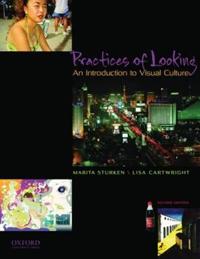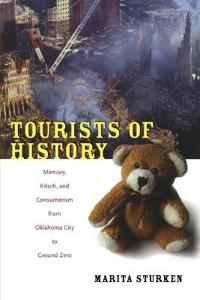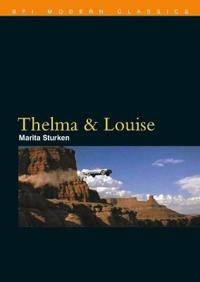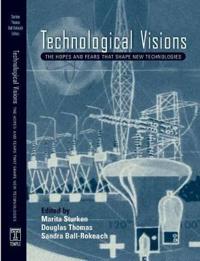Practices of Looking (Pocket)
avMarita Sturken, Lisa Cartwright, Marita Sturken
ISBN: 9780195314403 - UTGIVEN: 200901Visual culture is central to how we communicate. Our lives are dominated by images and by visual technologies that allow for the local and global circulation of ideas, information, and politics. In this increasingly visual world, how can we best decipher and understand the many ways that our everyda[...]
Tangled Memories (Häftad)
avMarita Sturken
ISBN: 9780520206205 - UTGIVEN: 199702Analyzing the ways U.S. culture has been formed and transformed in the 80s and 90s by its response to the Vietnam War and the AIDS epidemic, Marita Sturken argues that each has disrupted our conventional notions of community, nation, consensus, and 'American culture.' She examines the relationship o[...]
Tourists of History (Häftad)
avMarita Sturken
ISBN: 9780822341222 - UTGIVEN: 200801In "Tourists of History", the cultural critic Marita Sturken argues that over the past two decades, Americans have responded to national trauma through consumerism, kitsch sentiment, and tourist practices in ways that reveal a tenacious investment in the idea of America's innocence. Sturken investig[...]
"Thelma and Louise" (Häftad)
avMarita Sturken
ISBN: 9780851708096 - UTGIVEN: 200007"Thelma and Louise" sparked a remarkable public discussion about feminism, violence and the representation of women in cinema. Here, Sturken examines the production and reception of the film, and goes on to analyze its rich account of gender politics, landscape, and gun culture.[...]
Technological Visions (Pocket)
avMarita (EDT) Sturken, Douglas (EDT) Thomas, Sandra J. (EDT) Ball-Rokeach
ISBN: 9781592132270 - UTGIVEN: 2004-05For as long as people have developed new technologies, there has been debate over the purposes, shape, and potential for their use. In this exciting collection, a range of contributors, including Sherry Turkle, Lynn Spigel, John Perry Barlow, Langdon Winner, David Nye, and Lord Asa Briggs, discuss t[...]







